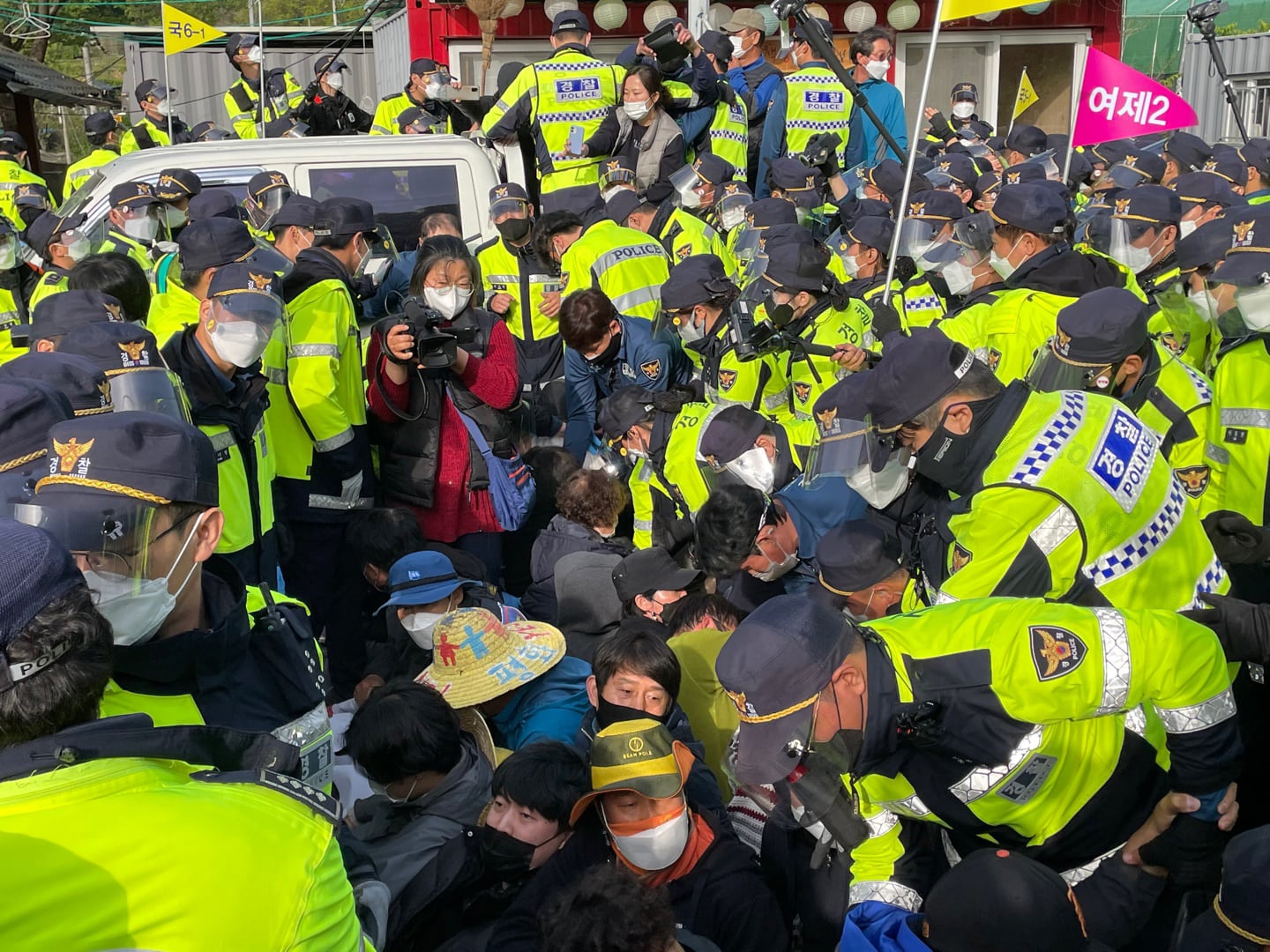Prosecutors have charged ex-high-ranking national security officials from the Moon Jae-in government with reportedly disclosing confidential information to organizations against the deployment of the U.S. Terminal High Altitude Area Defense (THAAD) system, apparently aiming to hinder its complete setup.
Chung Eui-yong, former head of the presidential National Security Office, and his former deputy, Suh Choo-suk, were charged without detention. Prosecutors allege Suh instructed staff on at least eight occasions to share sensitive details—including information on the transport of THAAD equipment and construction materials—with protest groups.
Included among these groups were three organizations that had been previously labeled by South Korea’s Supreme Court as supporters of North Korea. This includes the Pan-Korean Alliance for Unification, an organization that pushes for reunification under North Korean rule.
The released information allegedly encompassed secondary-level military secrets, resulting in a significant setback for national security.

THAAD’s deployment was approved under the Park Geun-hye administration as a countermeasure against North Korea’s growing nuclear and missile threats. The move drew fierce opposition from China, and anti-THAAD activists staged prolonged protests outside the Seongju base in southeastern South Korea, citing health concerns over electromagnetic radiation from the system’s radar.
In 2020, amid escalating tensions, South Korean and U.S. military authorities launched a covert transport operation to avoid clashes. Prosecutors say Suh tipped off protesters in advance, allowing them to block access roads with vehicles and disrupt the mission. Rather than quelling resistance, Moon administration officials actively enabled it.
At the time, the Moon government had effectively ruled out additional THAAD deployments, participation in the U.S. missile defense network, and the formation of a trilateral military alliance with the United States and Japan—positions widely seen as concessions to Beijing. The leaks were clearly part of a broader effort to delay THAAD’s rollout in line with those unofficial commitments.
Even though several tests confirmed that the radar did not pose any risks to human health, the Moon administration allegedly suppressed the findings due to concerns that this information might weaken public resistance against the system. This led to a five-year postponement of complete deployment. By taking such action, the administration inadvertently compromised South Korea’s missile defense capabilities in an attempt to satisfy Chinese interests.
The THAAD base was ultimately finished during President Yoon Suk-yeol’s tenure. It now falls upon the courts to reveal the complete truth and make sure those accountable face consequences for their actions.